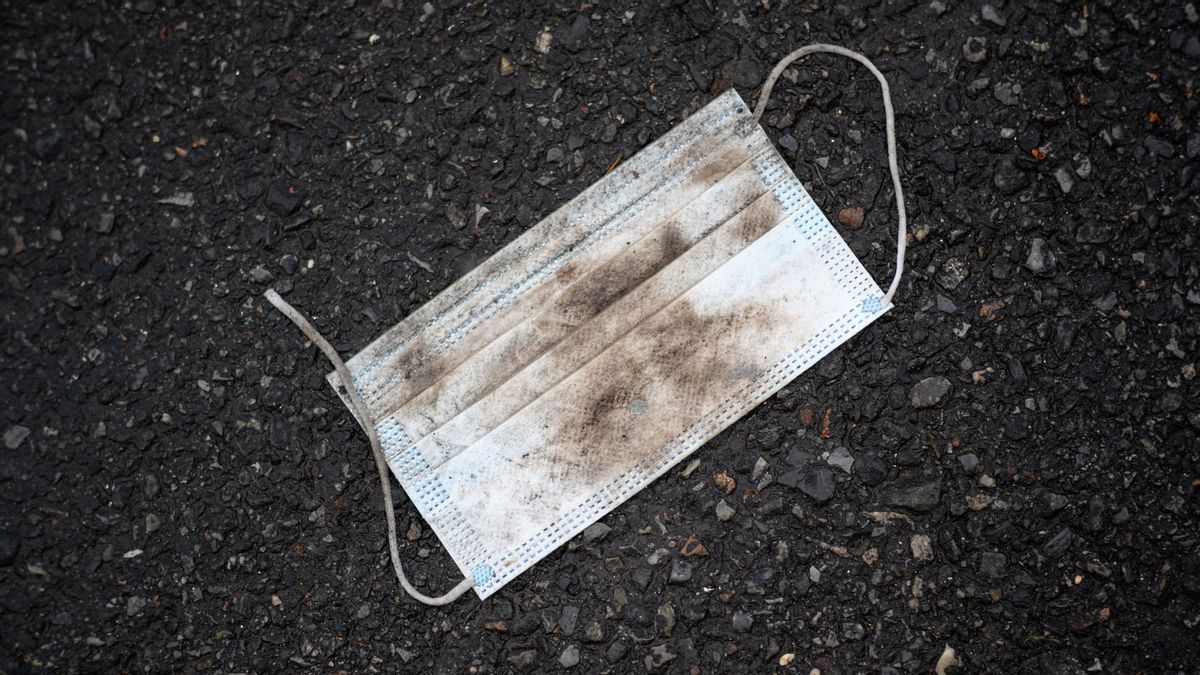JAKARTA - In the late 1860s, Charles Darwin stated that disgust could have evolutionary purposes. Disgust, he wrote, was innate and unintentional.
It evolved to prevent our ancestors from eating rotten food that could kill them. Quoting National Geographic, Friday, April 2, 2021, Darwin hypothesized that the early humans who were most susceptible to disgust survived to pass on their genes.
Meanwhile, the bolder ones are nutritionally extinct. Darwin's research was basically right. Disgust is a major aspect of the behavioral immune system, a collection of actions influenced by some of the most basic instincts that keep our bodies in tip-top shape.
"When it comes to keeping us healthy, disgust is associated with fewer infections, so it's a helpful emotion in contexts relevant to disease," said Joshua Ackerman, a professor of psychology at the University of Michigan.
In January, for example, researchers reported that people who tended to be disgusted had fared better during the COVID-19 pandemic. This may be because they tend to take more hygienic actions such as washing their hands.
Yet disgust was more complex than Darwin thought. Studies also show that what we find repulsive stems from a patchwork of innate responses and various life experiences that depend on culture and the environment.
For some people, excessive disgust prevents doing dirty things that actually keep them healthy, such as eating probiotic-rich fermented foods.
"This could be a double-edged sword because it is also associated with an aversion to foreign things, like food, some of which can actually improve our health and immune function," said Ackerman.
Further researchThere has recently been research on the protective effect of disgust. Researchers conducted research in the Amazon rainforest on an indigenous tribe, the Shuar. The reason they are the object is because researchers have to study them in environments with high pathogens that are more similar to how our ancestors lived.
The researchers then collected blood and fecal samples from the participants and compared their health with their levels of disgust. As scientists report in February 2021 from the Proceedings of the National Academy of Sciences, individuals who score highest in disgust sensitivity have the fewest viral and bacterial infections.
In the communities studied, respondents could not avoid things that some people might find dirty such as their excrement and disgust did not protect them from larger parasites. However, disgust helps them minimize contact with body excretions that may carry microbial disease.
This led parasitologist Tara Cepon-Robins to believe that disgust evolved to protect ancestors from disease, as Darwin hypothesized. Participants are often involved in subsistence activities such as hunting, fishing, horticulture and foraging for food.
The activity exposes them to possible pathogens, including roundworms and whipworms, which thrive in soil contaminated with feces.
"They are disgusted the most by things like stepping on feces and drinking chicha, a drink made by chewing yuca and vomiting it up," says Cepon-Robins. Chicha is a traditional fermented drink and one of the main sources of water in the more rural Shuar community.
Researchers in various fields are still exploring disgust in order to better understand the world and oneself. Disgust is part of the balance of society. Too little and we might get sick. Too much of it can isolate us and even endanger health. Continuing to uncover these intricate rugs can help researchers decipher a variety of human behavior.
"There are things we find disgusting, but habituation can happen," said Cepon-Robins.
“Nurses are used to handling body fluids. Our fear of things that might be a little nasty goes away when we see them over and over again - and they don't kill us, "concluded Cepon-Robins.
* Read other information about KNOWLEDGE or read other interesting writings from Yudhistira Mahabharata.
BERNAS OthersThe English, Chinese, Japanese, Arabic, and French versions are automatically generated by the AI. So there may still be inaccuracies in translating, please always see Indonesian as our main language. (system supported by DigitalSiber.id)













